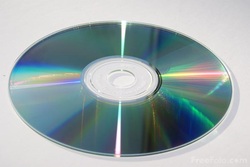
Emily White, a young intern at NPR, wrote candidly about the fact that she almost never buys compact discs. She’s built up a sizable library of songs by downloading music from the internet and copying CDs.
Her article generated a storm of controversy, with some people taking her to task for violating copyright laws and ignoring an ethical responsibility to compensate the musicians whose music she so enjoys.
White has been called a “pirate” and accused of “looting.” And she’s been held up as a shocking example of a generation whose sense fairness and decency, where the use of music is concerned, has collapsed.
In one response, songwriter David Lowery argued that White’s fondness for copying and downloading is a disturbing shift in morals. (See here.) Addressing White, he writes, “You have grown up in a time when technological and commercial interests are attempting to change our principles and morality.”
This is where I’d like to step into the debate – because I question Lowery’s facile reference to “our” principles and morality.
I suspect that throughout the 20th century, when billions of dollars were spent on recordings, most consumers gave little thought to how much of their money was going to the musicians. And I suspect they thought even less about the royalties that radio stations paid to broadcast music that the public could listen to free of charge.
From the consumers’ perspective, when they bought a recording, they were laying down their cash for a physical thing – a cylinder, shellac disc, LP, 45-rmp single, prerecorded cassette, CD or whatever – which they then owned, as one might own a chair or a pair of shoes. I don’t believe that the principles of copyright law impinged very much on the public’s consciousness, or ever became embedded in cultural ideas of morality.
Now that it is possible to obtain recorded music without having to acquire any kind of physical object, the public – rightly or wrongly – doesn’t perceive music as endowed with monetary value. People have never before been called upon to pay for music recordings per se.
And it’s worth noting that, when measured against the length human civilization, copyright law isn’t very old. The ancient Egyptians had no copyright laws governing music – nor did the Greeks, Romans or the dynasties of China. Copyright, as we know it, started in the 18th century in Europe for the benefit of book publishers, and wasn’t applied to musical performance until late in the 19th century. It hasn’t had time to work its way into our culture’s value system.
Today, copyright violation is what sociologists call a “folk crime”: something that’s technically illegal but is widely practised because most people see nothing wrong with it – and they know they aren’t likely to be punished because the law can’t be effectively policed. Lowery has it exactly backwards. It’s those who are arguing that society should respect copyright laws on recorded music – even when the music is available for free, and can be obtained without the need for any kind of physical packaging – who are attempting to change “our principles and morality.”
And they’re not, evidently, having much luck. Those who attempt to defend copyright on recorded music are fighting a battle they are doomed to lose – especially if their chief weapon is moral suasion. Such arguments find very little support within our culture.
Copyright law served musicians well, as long as it could be effectively applied to the various media through which recorded music was made available to the public. But thanks to the internet and other technologies, copyright on music recordings has become unenforceable.
It’s time for musicians to devise new models of compensation for their work. I hope they do, and I believe they will. They are clever people.
© Colin Eatock 2012
(Irony noted!)
 RSS Feed
RSS Feed

